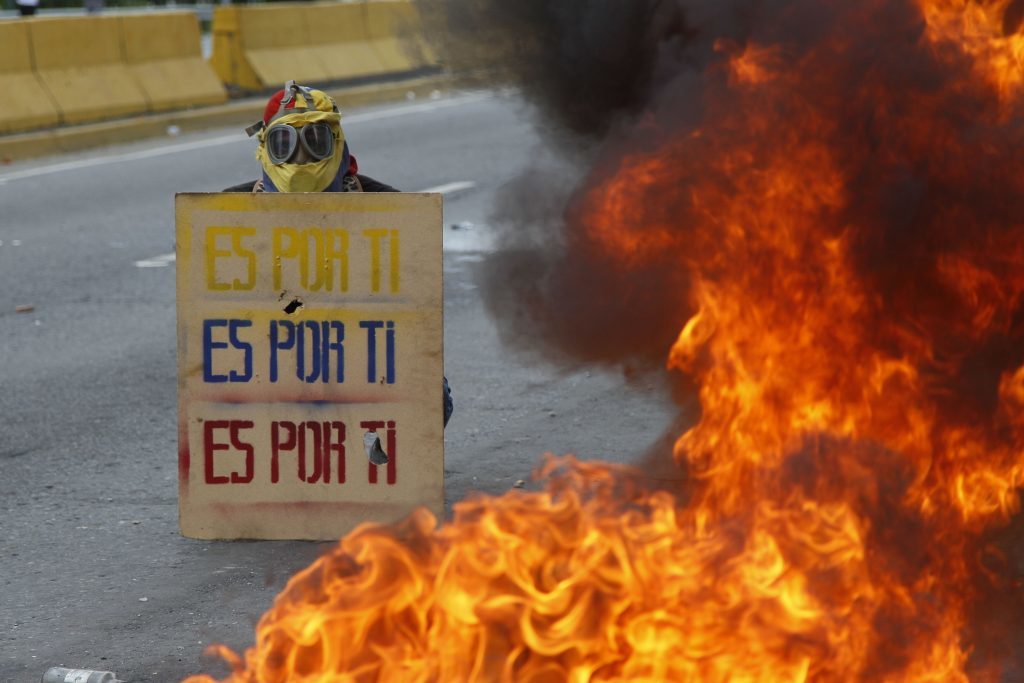
Pro and anti-government factions in Venezuela have dug themselves further into their trenches amid the nation’s deepening political crisis.
Each side spent Monday staking a claim to the powers granted them by duelling national assemblies.
The new chief prosecutor outlined plans for restructuring the Public Ministry while the opposition-controlled National Assembly vowed to continue meeting at the stately legislative palace.
National Assembly president Julio Borges told fellow lawmakers they should keep an active presence in the building despite threats from the new assembly to swiftly strip them of any authority and lock up key leaders.
He said: “We are a testament to the fight for democracy. It should be known this assembly was true to its mandate.”
In theory, both the National Assembly and the pro-government constitutional assembly can rule simultaneously.
However the new super body, created through a July 30 election that drew international condemnation, has the authority to trump any other branch of government.
Since its installation on Friday, it signalled acting swiftly in response to President Nicolas Maduro’s commands, which have included stripping legislators of their constitutional immunity.
Diosdado Cabello, an assembly member and leader of the socialist party, said the new body would be in power for “at least two years”.
He defended initial decrees to oust top law enforcement officer Luisa Ortega Diaz and create a “truth commission” that will wield unusual authority to prosecute those suspected of fuelling recent political unrest.
Mr Cabello said the decisions all aligned strictly with the 1999 constitution crafted by the late President Hugo Chavez.
Ms Ortega Diaz’s replacement, Ombudsman Tarek William Saab – who was recently sanctioned by Washington for failing to protect protesters from abuses in his role as the nation’s top human rights official – appeared on state television to both chastise the leader of the agency he will oversee and announce his plans to revamp it.
He criticised her of “fanning the flames” of political conflict and said he would proceed with a “logical restructuring” of an office he deemed overly political and bureaucratic.
Ms Ortega Diaz is not recognising Mr Saab as attorney general, and both opposition leaders and foreign dignitaries have said they will not acknowledge him as chief prosecutor.
The widening political gulf comes as opposition parties face a rapidly approaching deadline to declare whether or not they will take part in scheduled December regional elections.
Opposition members refused to participate in the election for delegates to the constitutional assembly but have thus far been divided on whether or not to take part in the upcoming vote for governors.
While Mr Maduro’s popular support is estimated to run at no higher than 20%, some opposition leaders are sceptical of running in an election they fear could be rigged.
The official turnout count in the July 30 election for the constitutional assembly is being questioned at home and abroad.
The CEO of voting technology company Smartmatic said last week the results were “without a doubt” tampered with and off by at least one million votes.
Recommended for you
